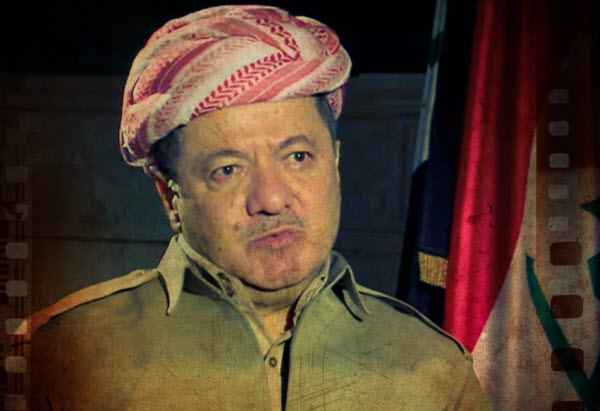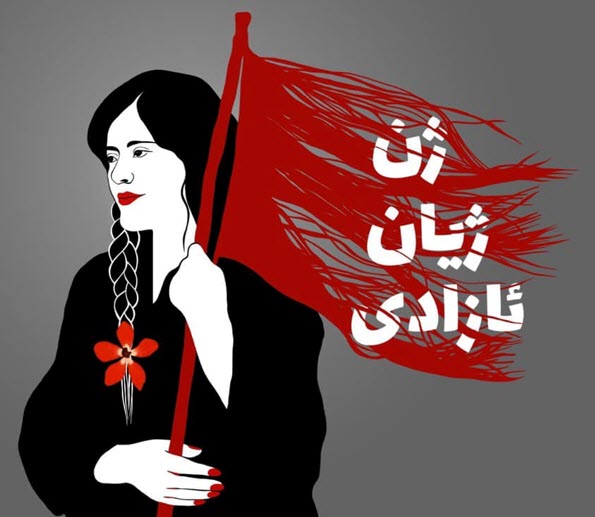Iraqi Kurdish regional President Masoud Barzani speaks during a news conference with German Defence Minister Ursula von der Leyen (not pictured) in Arbil, north of Baghdad, September 25, 2014. Reuters
On Sunday, May 3, Iraqi Kurdish leader Masoud Barzani will begin a weeklong visit to Washington where he will meet with President Barack Obama. Barzani’s visit comes as the Islamic State (ISIS, ISIL, Daesh) continues to threaten much of Iraq and Iraqi Kurdish areas as well. Barzani is expected to request more direct assistance and weaponry in the fight against ISIS. Not all is so cut-and-dry, however. Here are some questions that President Obama and Congress should ask the Kurdish leader:
- Mr. Barzani, will weapons provided to Iraqi Kurdistan really be used to fight ISIS? Various European states have already provided the Kurdistan Regional Government (KRG) with weaponry to fight ISIS. Yet, most of the weaponry given to the KRG apparently is being stockpiled for your Kurdistan Democratic Party (KDP) and is not being distributed to the frontline in Kirkuk or other areas which elected opposition figures. Mr. Barzani, will you provide both weaponry and ammunition to the peshmerga based in Kirkuk and its environs to fight ISIS?
- What are your plans for democratic transition? Mr. Barzani, you are currently serving the 10th year of your eight-year presidency. Southern Iraq already seems to be bypassing Kurdistan when it comes to democracy; both the national Iraqi government and most if not all provinces outside Kurdistan have had democratic transitions, yet Kurdistan has the same figures leading its government. So, let me be blunt: do you plan to abide by the democratic process and step down, or will you simply acknowledge that Kurdistan is now a dictatorship? How long do you plan to serve? When your supporters say you are indispensable, does that mean that over more than two decades at the helm of Iraqi Kurdistan, you have failed to raise a generation of capable Kurds? In addition, you appear determined to place your son in power after you despite his unpopularity in Kurdistan and questions regarding his judgment and stability. Do you support the same type of dynastic succession in Kurdistan that Egyptian President Hosni Mubarak and Libyan leader Muammar Qadhafi tried to implement in their countries? What makes you believe there won’t be a similar result?
- Does nepotism undercut the fight against terror? Mr. Barzani, Iraqi Kurdistan used to be the most stable region of Iraq, but recently there has been cause for concern. There was the car bombing near the US consulate in Erbil, for example. Last year there was a similar bombing near the market. And, if the KRG’s explanations as to the murder of a journalist kidnapped near the university in broad daylight are to be believed, then Islamist terrorists have free rein in your city. Can you explain why your son is the best person to coordinate the intelligence service? Did any of the money used to purchase his palatial residence in McLean, Virginia, come from the anti-terror budget? Alas, the problem of nepotism undercutting security seems more the rule rather than the exception. Last summer, the Islamic State got perilously close to Erbil. Thankfully, the Kurdish peshmerga (and US airstrikes) helped push ISIS back. But not all peshmerga behaved honorably. Some peshmerga leaders and some senior officials from the political party you head, as well as reportedly members of your own family, simply bought tickets and fled. Will you release the airport manifests to identify who, in Kurdistan’s hour of need, betrayed their oaths? Should these officials retain their jobs and generous state salaries?
- Do you believe in freedom of the press? Mr. Barzani, the press in Kurdistan—as in Iraq—is sometimes rambunctious and not always professional. But, many young journalists are ethical and provide an important check on the corruption which blights Kurdistan’s future. In recent years, Kurdish security forces have murdered at least four journalists, but no one has been held accountable for their crimes. One journalist, Sardasht Osman, was kidnapped and killed after penning a poem critical of nepotism within your family. If security is so good in Kurdistan, why is it that you have been unable to bring the perpetrators of brazen murders to justice? Do you believe that Lèse-majesté should be a capital offense?
- Where are the missing billions? Mr. Barzani, Kurdistan is facing an unprecedented financial crisis. Many government workers have not been paid in months. Nevertheless, according to the Kurdistan Tribune, “The country is bankrupt and most people are struggling to make ends meet, while 10,000 millionaires and 15 billionaires have emerged in a short space of time.” How is that the case? You have often blamed slow payments from the Iraqi central government, but this does not take into account the billions of dollars which Iraqi Kurdistan supposedly reaped from its own local oil production. And, by the way, most of these oil companies likewise haven’t been paid their share of the royalties and their expenses, so it seems that the problem of the missing money actually originates within the KRG itself. Many oil analysts privately suggest that you are playing Russian roulette with the oil companies and Kurdistan’s future: Daring the oil companies which have already invested so much money in the Kurds’ future to pick up and leave. They may not for some time but, make no mistake, they talk and it’s now conventional wisdom that Kurdistan is a place to get robbed, not a place to invest. Again, if you have not read it, you might want to consider this economic analysis from the Kurdistan Tribune which found a massive increase in corruption since 2005. Why is it that Kurdistan has become a region of first world restaurants and third world hospitals? Can you please explain where the missing billions of dollars have gone? Perhaps you can use some of that money to help the Yezidis—whom your peshmerga abandoned to the Islamic State despite repeated requests for arms and assistance—to reestablish their community?
- Is your goal really independence? Mr. Barzani, many Kurds speak of their dream of independence. Let’s face it, if you really wanted independence, you could have had it after the rise of the Islamic State. But, if you declared independence, you would not receive any oil revenue from the richer oil wells in southern Iraq. Is that what is keeping you in Iraq? Likewise, it’s now been almost 20 years. Can you explain to the Kurdish public why, in 1996, you invited the forces of Saddam Hussein into the Kurdish capital of Erbil simply to keep a Kurdish rival out? This was only eight years after Saddam Hussein used chemical weapons in Halabja. You often cite Saddam’s role in the deaths of 8,000 members of your tribe. But, do you really care about such things given your enthusiasm to work with him so soon after? Maybe there’s some time for both truth and reconciliation. Likewise, if you have faith in Kurdistan’s future, why do your sons seek US citizenship, and why do they travel to Washington to have their wives deliver babies so as to ensure your children have such citizenship? The last time this happened was just weeks after you and your sons cancelled a trip to Washington because you couldn’t get an appointment with the president. Does personal business trump Kurdish national business?
Mr. Barzani, make no mistake, Kurdistan is an ally of the United States and you have achieved much in your tenure. But, sometimes allies must ask tough questions of each other. Fancy lobby contracts and carefully-selected lecture venues aren’t enough to paper over some very real problems going forward. Because, make no mistake, behind-the-scenes, these are the questions that persist with regard to your leadership and continue to retard the flourishing of US-Kurdish relations.
https://www.aei.org/publication/questions-president-obama-should-ask-kurdish-leader-masoud-barzani/





















